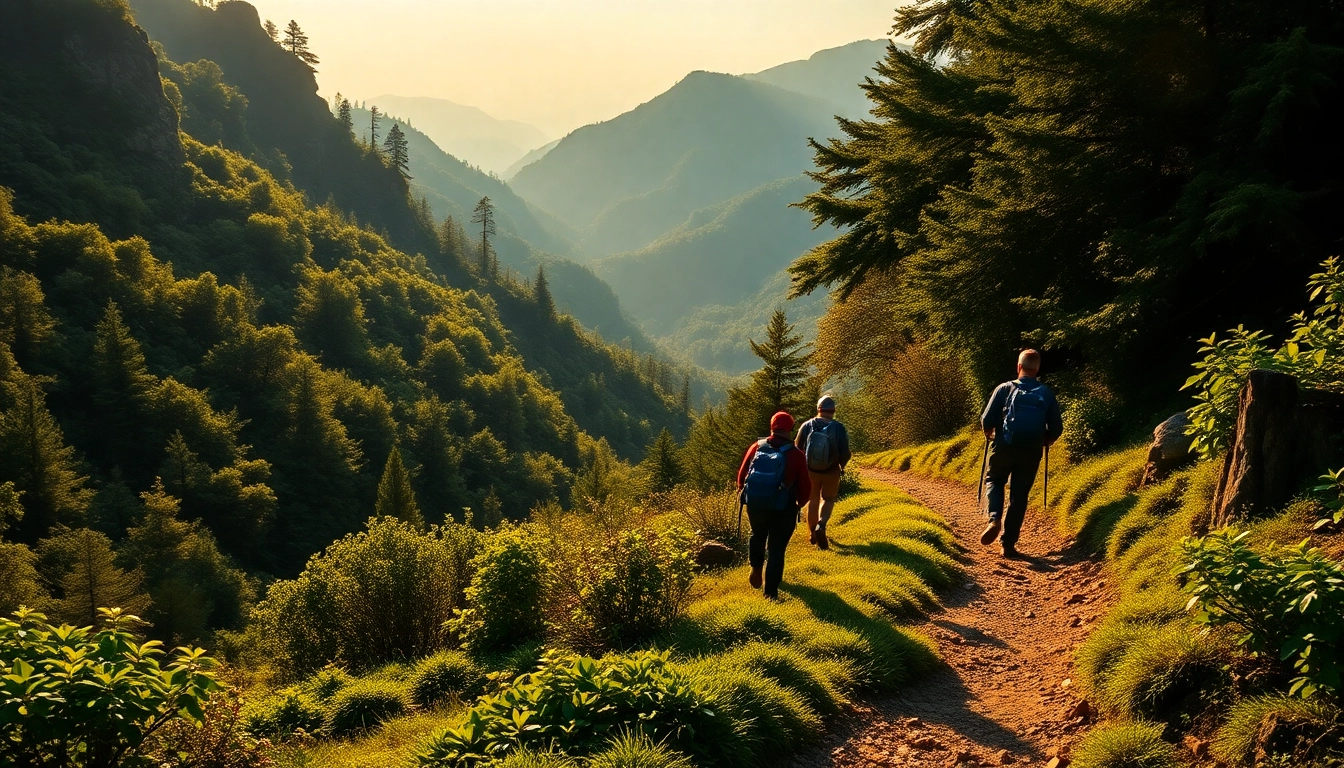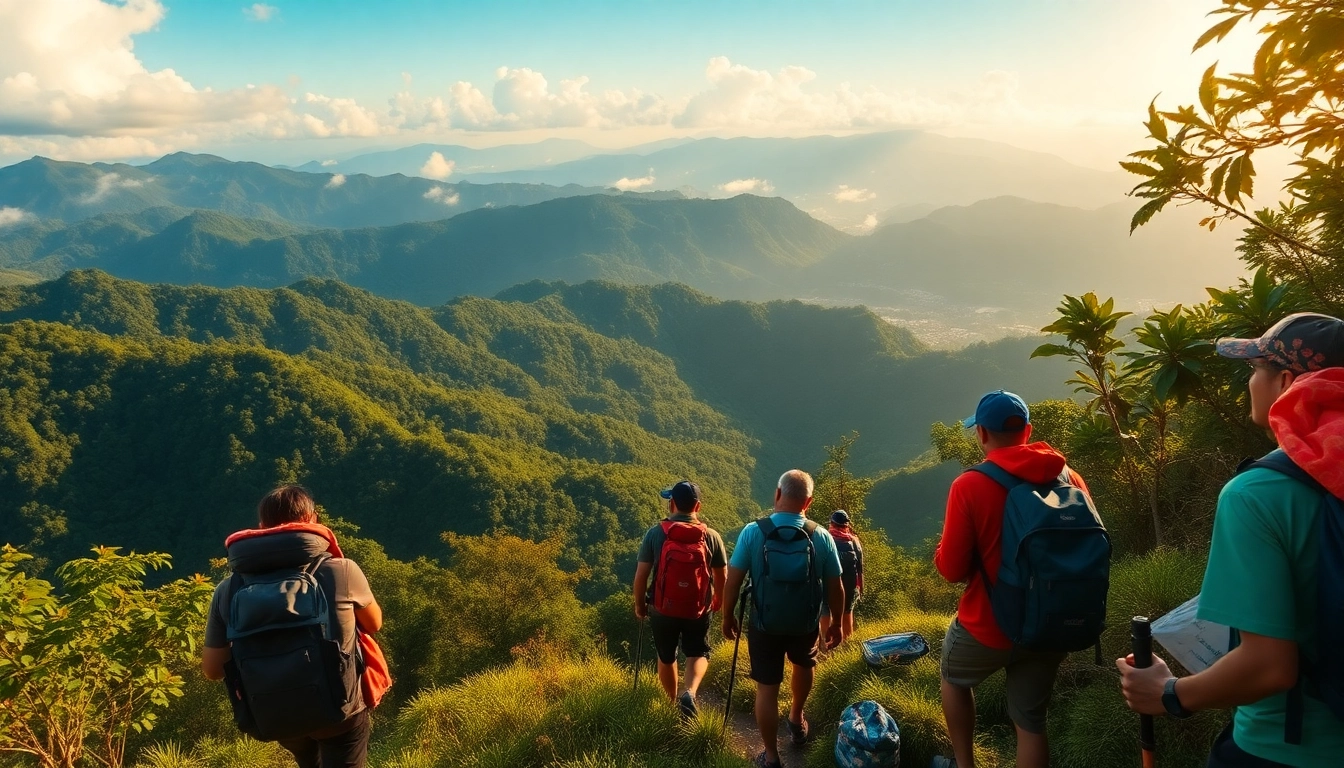Understanding Guided Hikes: Benefits and Key Features
Embarking on a hiking adventure enriches the soul, challenges the body, and immerses explorers in nature’s splendor. While solo trips and self-guided hikes offer independence, guided hikes elevate the experience through expert insight, safety, and personalized interpretation of landscapes. For travelers seeking a seamless and enriching journey through Indonesia’s diverse terrains, a guided hike provides unparalleled advantages. This comprehensive guide explores what defines a guided hike, its myriad benefits, the diverse types available, and practical advice to ensure you make the most of your adventure.
What Defines a Guided Hike?
A guided hike is an organized outdoor walking or trekking experience led by a trained and knowledgeable guide. Unlike independent or self-guided trips, these excursions are characterized by the presence of a professional who steers the route, manages safety considerations, and shares insights into the natural environment and local culture. Guided hikes can span a single day or extend over several days, depending on the destination and itinerary.
In Indonesia, guided hikes might involve traversing volcanic landscapes, jungles, waterfalls, or mountain peaks with the support of local guides who possess an intimate knowledge of the terrain, flora, fauna, and cultural heritage. These guides often serve as a bridge between travelers and the environment, enriching the journey with context and storytelling.
Moreover, guided hikes emphasize safety protocols, route planning, and environmental conservation, ensuring that travelers enjoy their experience while minimizing ecological impact.
Advantages of Choosing a Guided Hiking Tour
Expertise and Local Knowledge
Guides bring a wealth of local knowledge—geographical, historical, cultural, and ecological—that transforms a simple trek into an educational adventure. They can identify rare plant species, explain geological formations, and narrate local legends, deepening your appreciation of the surroundings.
Safety and Security
One of the primary benefits of guided hikes is enhanced safety. Guides are trained to handle emergencies, navigation challenges, and hazardous conditions. They carry essential safety equipment and have a safety plan tailored to the environment, which is vital in remote or challenging terrains.
Environmental Responsibility and Conservation
Guided hikes promote responsible travel practices. Guides educate travelers about ecological sensitivity, encouraging Leave No Trace principles and reducing environmental impact. This ensures that natural beauty remains preserved for future generations.
Convenience and Stress Reduction
Organizing logistics such as route planning, permits, transportation, and equipment can be daunting. Guided tours handle these details, allowing participants to focus solely on enjoying the experience. This also minimizes the risks of getting lost or facing unforeseen obstacles.
Cultural Immersion and Local Economy Support
Guided hikes often include interactions with local communities, providing authentic cultural insights and supporting regional economies through sustainable tourism initiatives.
Personalized Experience and Adaptability
Guides can tailor the itinerary based on the group’s fitness levels, interests, and time constraints. They can also suggest alternative routes or activities, ensuring everyone’s needs are met.
Types of Guided Hikes Available
Day Hikes
Typically lasting from a few hours up to a full day, day hikes are perfect for travelers seeking a manageable outdoor experience that fits into a busy schedule. They often involve natural attractions like waterfalls, mountain summits, or scenic viewpoints.
Multi-Day Treks
These extended adventures span several days and involve camping or staying in eco-lodges. They offer immersive experiences in remote wilderness areas, such as Indonesia’s volcanic landscapes or lush rainforests, with guides managing logistics and safety across multiple stages.
Specialized Guided Hikes
Some tours focus on particular interests—bird watching, botanical expeditions, or cultural heritage sites. Guides with expertise in these areas enhance the educational value.
Adventure and Challenge Tours
Targeted at thrill-seekers, this category includes high-altitude climbs, rugged jungle treks, or volcanic ascents, with seasoned guides ensuring safety while pushing personal limits.
Planning Your Perfect Guided Hike in Indonesia
Choosing the Right Trail for Your Skill Level
Indonesia offers a rich variety of landscapes suitable for all levels—from leisurely rainforest walks to strenuous mountain ascents. Assess your fitness, experience, and goals to select an appropriate route. For beginners, gentle nature walks or waterfalls exploration are ideal, while seasoned hikers may seek challenging volcano treks like Mount Rinjani or the active volcanoes in the Ring of Fire.
Consult local guides or tour operators to identify routes that match your abilities, ensuring an enjoyable and safe experience.
What to Expect from Guided Hiking Tours
Guided hikes in Indonesia typically include expert guidance, transportation arrangements, permits, and sometimes accommodations or camping gear. Expect educational stops, opportunities for photography, and cultural interactions. The guides often provide snacks, water, and safety equipment, creating a hassle-free adventure.
In addition, tours may include visits to nearby villages, markets, or temples, offering cultural insights that deepen your connection to the region.
Preparing for Your Adventure: Tips and Essentials
Proper preparation enhances safety and enjoyment. Pack essentials such as sturdy hiking boots, lightweight clothing suitable for tropical and mountain climates, rain gear, sun protection, insect repellent, and personal medications. Always check weather forecasts and trail conditions beforehand.
Communicate with your guide about any medical conditions or concerns. Stay hydrated and pace yourself, especially in high-altitude or humid environments. Respect local traditions and environmental guidelines.
Top Guided Hike Destinations in Indonesia
Mount Rinjani Trekking Tours
Located on Lombok Island, Mount Rinjani is Indonesia’s second-highest volcano and a popular trekking destination. Guided Rinjani hikes typically span 3-4 days, leading trekkers through lush forests, crater lakes, and volcanic terrains. Guides facilitate acclimatization and safety, ensuring a memorable ascent to the summit with panoramic views of the surrounding islands.
Many tour operators incorporate cultural visits to nearby Sasak villages, blending natural adventure with local traditions.
Exploring the Sekumpul Waterfalls
Nestled in Bali’s northern highlands, the Sekumpul Waterfalls are an enchanting series of cascades accessible via guided hikes. Guides help navigate the jungle trails, crossing rivers and climbing rocks, all while sharing insights about the surrounding flora and local legend. This experience offers a refreshing retreat amidst tropical wilderness.
Jungle Adventures in Gunung Leuser National Park
One of Southeast Asia’s richest biodiversity hotspots, Gunung Leuser National Park in Sumatra is renowned for guided jungle treks. Visitors have the chance to see orangutans, pygmy elephants, and exotic birds under the supervision of experienced guides. These eco-tours emphasize conservation education and responsible tourism, providing an immersive experience in a pristine rainforest.
Booking and Joining Guided Hiking Tours
How to Find Reliable Guided Hike Providers
Research is key to ensuring quality and safety. Look for operators with positive reviews, proper certifications, and experienced guides. Websites, travel forums, and local tourism offices provide references. Consider tours that promote sustainable practices and engage with local communities.
What Is Included in Guided Hiking Packages
Typically, packages encompass transportation, permits, guides, safety gear, meals, accommodations, and equipment rental. Clarify what’s included beforehand, and verify if optional extras like tips, souvenirs, or personal expenses are additional.
Safety and Environmental Responsibility
Ensure your chosen provider emphasizes safety protocols, such as first aid readiness, emergency procedures, and environmental care. Avoid tours that leave minimal ecological footprint and respect local cultures. Carry out all waste, stay on designated paths, and support local conservation initiatives.
Enhancing Your Hiking Experience: Expert Tips
Engaging with Guides for Better Insights
Ask questions, listen to stories, and show curiosity about the region’s history, flora, fauna, and culture. Guides often have fascinating anecdotes that add depth to your trek and enhance understanding.
Capturing Memories and Respecting Nature
Carry a camera, but prioritize the environment. Avoid disturbing wildlife or trampling fragile vegetation. Follow guidelines for photography and refrain from taking or collecting natural artifacts.
Maximizing Group Dynamics and Personal Enjoyment
Communicate your pace and interests openly. Participate in group activities and be respectful to fellow hikers. Use the opportunity to learn from others’ experiences and forge connections amid nature.

